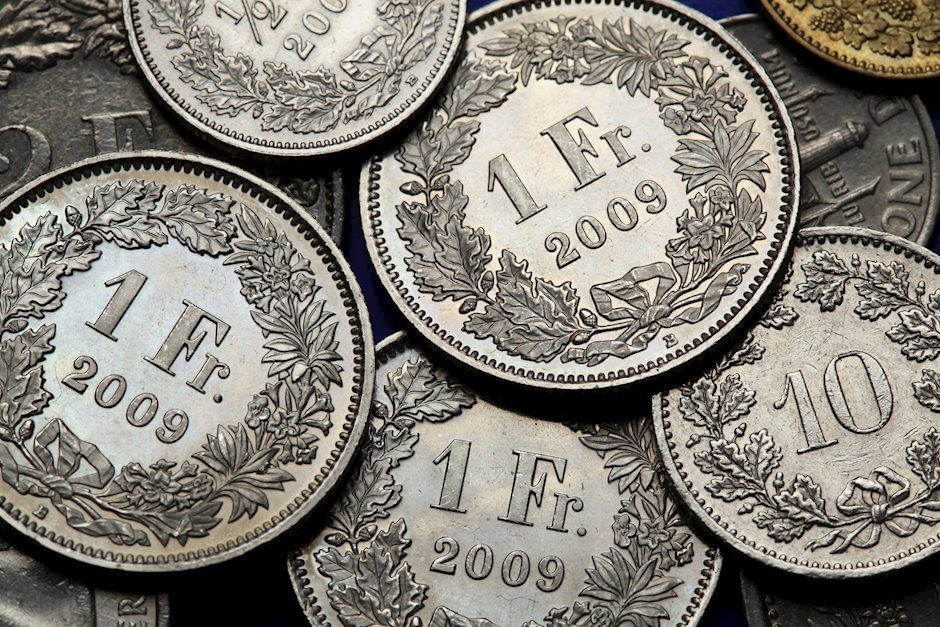USD/CHF falls to near 0.8800 due to safe-have flows
- USD/CHF declines as safe-haven flows favor the Swiss Franc amid global economic uncertainty.
- The PBOC cut the one-year MLF rate to 2.30% from 2.50% on Thursday.
- The US Dollar may struggle due to a decline in Treasury yields.

USD/CHF extends its losses for the second consecutive day, trading around 0.8810 during the Asian early European session on Thursday. The Swiss Franc (CHF) gains ground due to safe-haven flows amid uncertainty regarding the global economy.
Negative sentiment in global stock markets affects risk assets, which drives the investors toward safe-haven Swiss Franc. US stock indices have decreased as technology stocks suffered more losses, exacerbated by disappointing quarterly earnings from major US tech companies Tesla and Alphabet. Additionally, Japanese shares hit five-week lows as the decline in technology stocks intensified.
Additionally, concerns about the weak Chinese economy were heightened by an unexpected rate cut from the People's Bank of China (PBoC) on Monday. The People’s Bank of China (PBOC), cut the one-year Medium-term Lending Facility (MLF) rate from 2.50% to 2.30% on Thursday. Moreover, the Bank of China, one of the world's largest banks, announced a 10-20 basis points cut in time deposit rates.
The US Dollar may limit its downside as recent US PMI data showed a faster expansion in private-sector activity for July, underscoring the resilience of US growth despite elevated interest rates. This data gives the Federal Reserve (Fed) more leeway to uphold its restrictive policy stance if inflation does not show signs of easing.
Investors are expected to closely monitor the US Gross Domestic Product (GDP) Annualized (Q2) data on Thursday and the Personal Consumption Expenditures (PCE) inflation data on Friday. These reports are expected to provide new insights into the economic conditions in the United States.
Swiss Franc FAQs
The Swiss Franc (CHF) is Switzerland’s official currency. It is among the top ten most traded currencies globally, reaching volumes that well exceed the size of the Swiss economy. Its value is determined by the broad market sentiment, the country’s economic health or action taken by the Swiss National Bank (SNB), among other factors. Between 2011 and 2015, the Swiss Franc was pegged to the Euro (EUR). The peg was abruptly removed, resulting in a more than 20% increase in the Franc’s value, causing a turmoil in markets. Even though the peg isn’t in force anymore, CHF fortunes tend to be highly correlated with the Euro ones due to the high dependency of the Swiss economy on the neighboring Eurozone.
The Swiss Franc (CHF) is considered a safe-haven asset, or a currency that investors tend to buy in times of market stress. This is due to the perceived status of Switzerland in the world: a stable economy, a strong export sector, big central bank reserves or a longstanding political stance towards neutrality in global conflicts make the country’s currency a good choice for investors fleeing from risks. Turbulent times are likely to strengthen CHF value against other currencies that are seen as more risky to invest in.
The Swiss National Bank (SNB) meets four times a year – once every quarter, less than other major central banks – to decide on monetary policy. The bank aims for an annual inflation rate of less than 2%. When inflation is above target or forecasted to be above target in the foreseeable future, the bank will attempt to tame price growth by raising its policy rate. Higher interest rates are generally positive for the Swiss Franc (CHF) as they lead to higher yields, making the country a more attractive place for investors. On the contrary, lower interest rates tend to weaken CHF.
Macroeconomic data releases in Switzerland are key to assessing the state of the economy and can impact the Swiss Franc’s (CHF) valuation. The Swiss economy is broadly stable, but any sudden change in economic growth, inflation, current account or the central bank’s currency reserves have the potential to trigger moves in CHF. Generally, high economic growth, low unemployment and high confidence are good for CHF. Conversely, if economic data points to weakening momentum, CHF is likely to depreciate.
As a small and open economy, Switzerland is heavily dependent on the health of the neighboring Eurozone economies. The broader European Union is Switzerland’s main economic partner and a key political ally, so macroeconomic and monetary policy stability in the Eurozone is essential for Switzerland and, thus, for the Swiss Franc (CHF). With such dependency, some models suggest that the correlation between the fortunes of the Euro (EUR) and the CHF is more than 90%, or close to perfect.
Author

Akhtar Faruqui
FXStreet
Akhtar Faruqui is a Forex Analyst based in New Delhi, India. With a keen eye for market trends and a passion for dissecting complex financial dynamics, he is dedicated to delivering accurate and insightful Forex news and analysis.

















